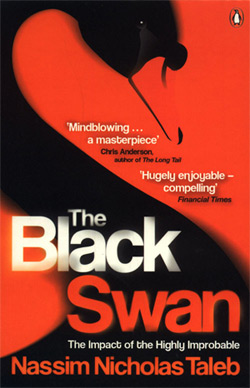IGN Australia story: ‘Advice: Careers in the Games Industry’, December 2010
A story for IGN Australia, which I compiled as a result of asking members of the Australian game development community for their games careers advice while writing my previous story for the site, about the games education sector. Excerpt below.
IGN Advice: Careers in the Games Industry
How should you go about entering the games industry? IGN talks to the pros.
As a supplement to our feature story about the Australian games education sector, IGN asked 10 members of the game development community for the best advice they could give to those looking to gain employment within the local market. Our thanks to everyone who participated in creating this feature.
Jane ‘Truna’ Turner – coordinator, IGDA Brisbane / co-founder, 48 Hour Game Making Challenge
Play games. Read books. Watch movies. Understand your world, so that when you’ve learned some hands-on, practical skills, you have ideas to make new, exciting forms of games. Generate your own enthusiasm, and your own, new industry. Don’t go and be a little worker; go and make your own world. I think games are just beautiful. Design is powerful. Game design is utterly powerful. You’re playing with culture and philosophy and fun and image and audio; the whole kit and caboodle. Don’t just think about making new forms; think about pushing the boundaries with it.
If you go to uni, you’re in the ideal position, because Duncan Curtis – one of the guys who started 3 Blokes Studios – I think it was him that coined the phrase ‘the uni advantage’, which is: there you are. You’ve got your mates, you’re used to not sleeping, you’re used to living off noodles, you haven’t got a mortgage yet. You can actually afford to set up a little company and see what happens, and explore. You need to do it for a portfolio anyway; why not start making experimental pieces, put them up on Congregate, do some iPhone dev, do some Android dev? Little, fast, experimental work.
John Passfield – Chief Creative Bloke, 3 Blokes Studios / co-founder and former Design Director, Krome Studios
One of the big things we look for when we’re interviewing people is their portfolio. Whether it be as an artist showing your work, or a programmer and having a playable game; that just puts you so far ahead of other people when you’re applying for a job. And even a designer, if you have a little walkthrough video. One of the guys we hired at Krome for Ty the Tasmanian Tiger 2 – Rob Davis, a graduate, who’s now working at Microsoft Games Studios in Seattle – he had a walkthrough of a Ty The Tasmanian Tiger level that just blew everyone else away. He’d thought about it, and made a level up. He couldn’t program, or really do art, but he did a simple little walkthrough video, and explained his thought processes. That was amazing. It gave him such competitive advantage.
So many people come for an interview, but they don’t really have anything to show. And clearly, if they’re going for a particular job, it’s really important to have something [to show] that applies to that job. If you’re applying for an iPhone developer, even if you can’t program, if you just mocked up an iPhone game on screen in Flash or something, or as an animatic using whatever tools you’ve got, that would definitely put you way ahead of other people – as long as it’s an interesting [game] concept. That simple process of coming prepared with an example of your work, targeted to who you’re applying for. That’s how you put yourself ahead of people. The staff we’ve hired at 3 Blokes are those who’ve had workable demos up on a place like Newgrounds or Kongregate.
When I’m looking to hire, I look for enthusiasm in the medium, the platform that we’re making games for. That’s really important. And also – team fit. Games is a collaborative process. And obviously, if you’ve started a degree program, it’s important to see that you’ve finished a degree. It’s really good to show that you’ve finished something. Degrees are good, because it shows that someone has the wherewithal to stick it out. Holding a degree answers a lot of questions about somebody when they come in.
For the full article, visit IGN Australia.
 For the last couple months, I’ve been reading a book by
For the last couple months, I’ve been reading a book by  I’ve been online for like 10 years, and I’m only just beginning to consciously pay attention to this stuff. Cumulative advantage dictates that the more time you spend online building meaningful relationships and contributing to the internet, the easier it’ll be to get what you want.
I’ve been online for like 10 years, and I’m only just beginning to consciously pay attention to this stuff. Cumulative advantage dictates that the more time you spend online building meaningful relationships and contributing to the internet, the easier it’ll be to get what you want.